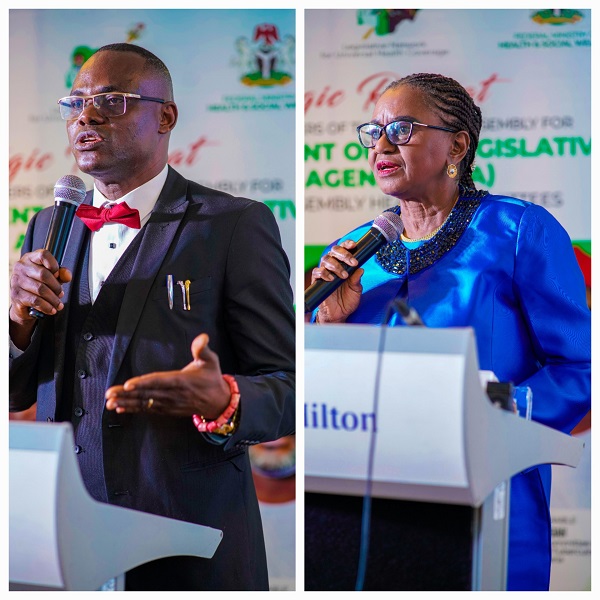
In an urgent plea to address Nigeria’s pressing healthcare challenges, stakeholders in the health sector have called for increased financing and government accountability.
The call to action came during the strategic retreat of the 7 health committees of the National Assembly under the Legislative Network for Universal Health Coverage and Health Security (LNU), held in Abuja.
A senior health specialist from the World Bank Group, Dr. Olumide Okunola highlighted the alarming rates of maternal and infant mortality in Nigeria, a situation he found deeply concerning given the country’s wealth. He stressed that Nigerian mothers often cannot be certain of surviving childbirth and the survival of their babies is also precarious. Accessing healthcare in Nigeria frequently requires individuals to pay out of their own pockets, resulting in financial burdens and difficult decisions for families.
Okunola pointed out that Nigeria has the highest contribution to healthcare costs from citizens in Africa, primarily due to high out-of-pocket expenditures. He emphasised that it is the responsibility of decision-makers, particularly those in positions of power who can allocate public funding for healthcare, to address this issue. He stressed that without adequate public funding, the healthcare situation would not improve, leading to persistently high maternal and infant mortality rates.
He highlighted that Nigeria’s large population could be seen as a potential strength, but the country needs to reduce the number of births and child mortality to fully benefit from the demographic dividend. Okunola expressed concern that without addressing these issues, Nigeria might not achieve the same gains as other countries in Southeast Asia.
Neglecting basic healthcare issues like malaria and diphtheria has led to a growing population with hypertension and cancers, further straining the healthcare system and necessitating a focus on preventive measures and early interventions. Okunola urged leaders to prioritise healthcare financing and called for the better utilisation of available resources.
He also revealed recent discussions with the Minister of Health regarding plans to consolidate funding from various sources into a unified pot to improve the effectiveness of healthcare spending. However, this approach necessitates transparency and accountability from the government.
Despite the current challenges, Okunola expressed hope for the next four years and acknowledged the capabilities and dedication of lawmakers in shaping the future of healthcare in Nigeria.
Nigeria coordinator at Prevent Epidemics, Global Health Advocacy Incubator (GHAI), Mr. Emmanuel Alhassan stressed that the decisions made during the retreat would play a pivotal role in shaping the success of the country’s health sector over the next one to four years. He highlighted the importance of setting actionable and achievable milestones that can be tracked.
Alhassan discussed GHAI’s systematic approach to advocacy, which is locally led and aims to deliver policy wins in low and middle-income countries. He also emphasised the collaborative efforts between lawmakers and GHAI in shaping the legislative agenda for the next four years.
The chairperson of the Health Sector Reform Coalition (HSRC), Mrs. Chika Offor called on the legislators to support and enhance resources to address the challenges and gaps in Nigeria’s health sector. She further emphasised the need for collaboration between the legislators, civil society organisations and the media to step up advocacy and accountability efforts. These collaborative actions aim to ensure transparency in the health sector, holding the government accountable and driving positive changes to improve healthcare in the country.

